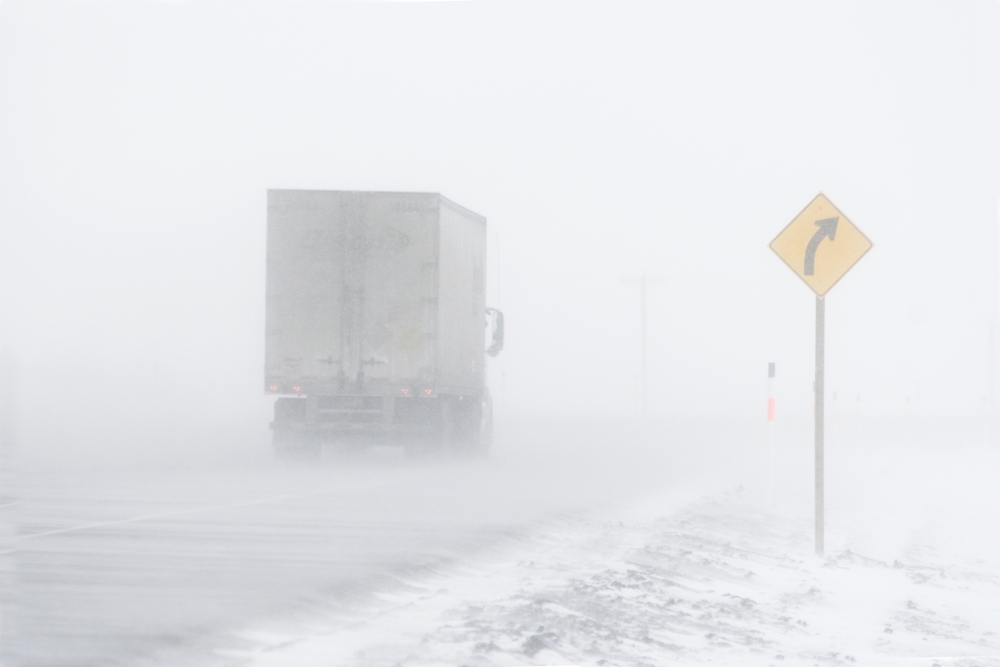The Federal Motor Carrier Safety Administration’s (FMCSA) regional emergency declaration from Jan. 18 has been extended to include 22 states ahead of a winter storm in the eastern U.S. 
Beginning Tuesday, Jan. 29 a quarter of the U.S. will face below freezing temperatures with parts of the midwest expected to be deep-frozen for days.
Truck drivers hauling heating fuels, including propane, natural gas, and heating oil, and other fuel products, including gasoline, into the affected states providing necessary relief will be exempt from hours of service regulations through Feb. 2, or until the end of the emergency, whichever is less.
States included in the declaration are: Connecticut, Illinois, Indiana, Iowa, Kansas, Kentucky, Maine, Massachusetts, Michigan, Minnesota, Missouri, Mississippi, Nebraska, New Hampshire, New Jersey, New York, Ohio, Pennsylvania, Rhode Island, Tennessee, Vermont and Wisconsin.
In some areas, travel conditions may be impossible and some states are taking action.
Pennsylvania
The Pennsylvania Department of Transportation (PennDOT) is advising motorists to closely monitor weather forecasts and conditions as a storm system is anticipated to impact most of the state, with many areas expected to see precipitation during the Tuesday rush hours.
The storm is forecast to be followed by a brutal cold front that could bring icy conditions and sudden snow squalls.
“While many parts of the state may not see significant accumulations, it is critical to always be mindful of conditions and keep safety top of mind when driving in inclement weather,” PennDOT Secretary Leslie S. Richards said. “Our crews are prepared to take on these conditions, and we call on the public to allow themselves extra time, drive according to conditions, and postpone travel if necessary.”
Due to potential snowfall rates and accumulations, PennDOT and the PA Turnpike are prohibiting empty tractor trailers and commercial vehicles pulling double trailers, RV/motorhomes, and motorcycles on the following Interstates beginning at 6 a.m. on Tuesday, January 29, and tentatively lifting (condition-dependent) at 6 p.m. on the same day:
- Interstate 380 full length from I-81 to I-80;
- I-78 full length from I-81 to the New Jersey state line;
- I-80 from I-180 to the New Jersey state line;
- I-81 from I-83 to the New York state line;
- I-84 full length from I-81 to the New York state line; and
- I-476 (PA Turnpike, Northeast Ext.) from I-78 to Clarks Summit (exit 131).
See a map of vehicle restrictions going into effect tomorrow at www.penndot.gov. This map is also provided below. Speed restrictions on Interstates and expressways may be implemented as the storm progresses.
Alabama
Alabama Gov. Kay Ivey issued a declaration of emergency Monday afternoon in anticipation of the incoming winter storm, prompting an hours suspension throughout the state for truckers providing direct emergency relief to affected areas.
Indiana
The Indiana Toll Road issued a travel ban from noon today through noon Tuesday. Prohibited are triple tractor-trailers, long-doubles (high-profile only), high-profile oversize permit loads.
Drivers Take Extra Caution
Drivers are advised to take extra measures to remain safe during the extreme cold,
- Stay at least six car lengths behind an operating plow truck and remember that the main plow is wider than the truck.
- Be alert since plow trucks generally travel much more slowly than other traffic.
- When a plow truck is traveling toward you, move as far away from the center of the road as is safely possible, and remember that snow can obscure the actual snow plow width.
- Never try to pass or get between several trucks plowing side by side in a “plow train.” The weight of the snow thrown from the plow can quickly cause smaller vehicles to lose control, creating a hazard for nearby vehicles.
- Never travel next to a plow truck since there are blind spots where the operator can’t see, and they can occasionally be moved sideways when hitting drifts or heavy snowpack.
- Keep your lights on to help the operator better see your vehicle. Also remember that under some state law (Pennsylvania), vehicle lights must be on every time a vehicle’s wipers are on due to inclement weather.
